What If?
Once upon a time there was an automobile company that was so big that it looked like it was about to drive all the other car companies out of business. This behemoth made every kind of car, from sports cars to limos, and every kind of truck, from the smallest to the largest. They made almost all of the busses that took people to work, and most of the locomotives that pulled trains across the county. Their diesel engines powered most of the construction equipment, ran the pumps that pulled oil out of the ground and moved ships on the seas. There was only one cloud on the horizon: they were too successful.
That company was General Motors. The times were the turbulent ‘60’s. John F. Kennedy was the President of the United States, and he was determined to knock GM down a peg. JFK had the tools, in the form of anti-trust laws and an activist justice department. Their goal: destroy GM’s supposed monopoly by removing Chevrolet from its corporate parent. An epic fight began, that continued for an entire decade. Eventually, the federal government became preoccupied with war, inflation and civil unrest, and withdrew their actions against GM. But what if…
The Kennedy administration had split Chevrolet from GM. At the time, Chevy accounted for roughly 35% of all US automobile sales. If the Justice Department had been able to detach the bow tie boys from The General, the resulting, newly-independent automaker would have been the largest car company in the world, about as big as Ford and Chrysler combined. America would have been left with four highly competitive automobile manufacturers: Chevrolet, GM, Ford and Chrysler.
No question, Chevy could have gone it alone. The brand had their own engineering staff and a number of unique platforms (e.g. the Corvair, Chevy II and Corvette). Although Chevrolet’s hugely successful BelAir and Impala line shared Fisher Body underpinnings with other GM products, the issue could have been easily resolved. GM had a long history of selling components to other carmakers; Chevy could have simply bought its bodies from Fisher. Other centralized functions, such as marketing and purchasing, would have presented more of a logistical challenge, but nothing insurmountable.
Imagine a Chevrolet brand focused on building low-cost cars and pickup trucks, with a world-class sports car for a halo vehicle. Freed from the obligation to tailor their cars to corporate platform sharing, Chevrolet’s lineup could have been distinctive, focused and original. Family cars like the BelAir and Impala would have evolved without GM’s baggage, emerging from the 60’s ready to fend-off Toyota and Honda in the low-end sedan market. Chevy could have responded to the deluge of quality imports with quality domestics.
With a corporate focus on product rather than interdepartmental politics and intrigue, Chevy would have never wasted billions on Saturn. It wouldn’t have had to sell cars of dubious international parentage, or rebadged someone else’s idea of a brand appropriate product. Meanwhile, bereft of Chevrolet, GM might also have become a much healthier, more nimble and innovative company. For one thing, Pontiac, Oldsmobile and Buick would have been forced to survive on their own, instead of coasting on Chevrolet’s profits and parts.
Since each GM division already had their own engineering staff, Pontiac would have been able to develop its performance excitement at a higher price point than Chevrolet. (The Firebird, when it appeared, would not have been a Camaro clone, but a distinct and distinctive car.) Oldsmobile could have built on its track record of innovative engineering established by the Toronado, America’s first practical front-wheel drive car. Buick might have used the same clever platform sharing that let them build a rear-wheel drive Riviera from the front-wheel drive Toronado to build solid luxury cars at relatively affordable prices.
Of course, who’s to say a Chevy-less GM wouldn’t have screwed-up their business just as badly as today’s GM. Or that a GM-less Chevy could have responded to the Japanese invasion with something better than the Vega. Even so, we now have a General Motors that’s significantly smaller than JFK’s trust-busters would have dared propose, just inches away from bankruptcy. Once that goes down, the smart money is on GM selling off or dumping everything except… Chevrolet, GMC and Cadillac. What goes around, comes around.
More by Bob Elton
Latest Car Reviews
Read moreLatest Product Reviews
Read moreRecent Comments
- Lou_BC Sweet car.
- FreedMike With 157K miles, that's basically a beater that looks good. Plus, I heard Honda CVTs turn dicey with age. I'm a "no" at $12,500, but someone's heart will go all aflutter over the J-vin (Ohio-vin?) and pay up. With a manual in the same shape, I'd be in for a LOT less.
- EBFlex More proof the EV world is crumbling. In a market with supposedly “insatiable demand”, these kinds of things don’t happen. Nor do layoffs.
- Buickman 17 Lacrosse, 18 Enclave, 19 Stingray Drop.each Red, Tan guts.I just want to feel this moment, and I own it~ (them, sic)
- FreedMike Dodge always had the best colors on the Challenger. I particularly liked Hemi Orange and Plum Crazy. Otherwise, give me Mazda's Soul Red.



















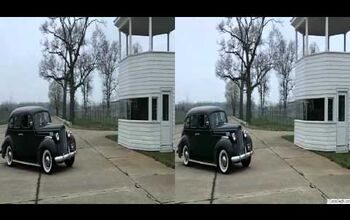
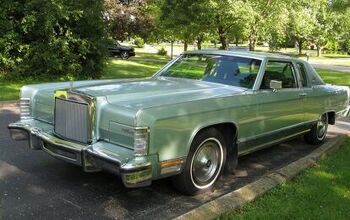
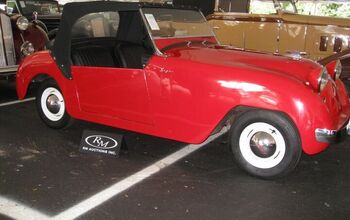
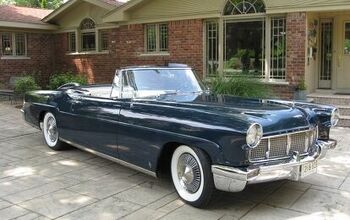
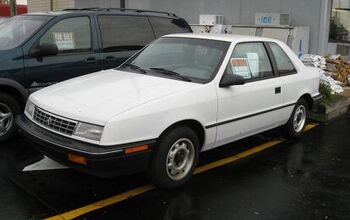



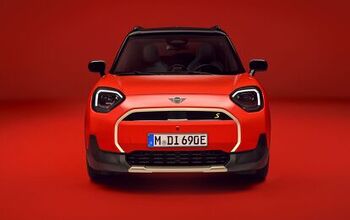






Comments
Join the conversation
I agree, GM is like a huge bureaucracy. They need to cut a lot of the fat out. Chevy, GMC, and Cadillac are the only ones worth preserving. One of GM's old cost cutting move that tickles me is their "chopping off" cylinders off from their V8s instead of redesigning a smaller engine. The 4.3 V6 is essentially a 350 with 2 less cylinders. The 4.3 sounds exactly what a V8 sounds with missing 2 cylinders. To it's credit the 4.3 was very durable, unlike GMs dreadful 350 diesel conversion. I recommend another book - "The Decline and Fall of the American Automobile Industry", written by Brock Yates in 1984. Easy to read and humorous. An obvious Detroit basher. Book is interesting to read, although very biased against Detroit.
I bought my mother a 1981 Delta Royale Oldsmobile Diesel and it was so quiet even the dealer couldn't tell the engine was running. But she lived in Montana and its impossible to keep passenger car diesel flowing at 70 below zero. (real temperature). On the other hand, those snooty Oldsmobile owners deserved what they got after complaining their cars had Chevrolet engines. I drive a 1994 Cadillac Fleetwood Brougham front engine/rear drive and it also has a Chevrolet engine (LT-1 Corvette). The last run of the big rear drive Cadillacs all had Corvette engines and you didn't hear any Cadillac owners complaining, did you?